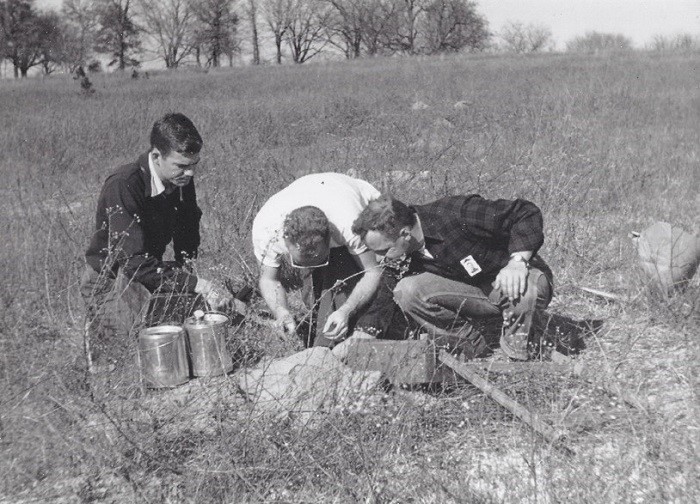Celebrating 70 years of Environmental Stewardship at the Savannah Rive Site
EM Update Newsletter ( a publication of the Department of Energy)
Vol 13, Issue 26
July 6, 2021

Savannah River Ecology Laboratory’s first graduate students collect samples at the former Savannah River Plant, now called the Savannah River Site.
AIKEN, S.C. – The University of Georgia’s (UGA) Savannah River Ecology Laboratory (SREL), located on the Savannah River Site (SRS), recently celebrated the 70th anniversary of its creation.
On June 23, 1951, UGA zoology professor Eugene Odum and his graduate students began the Laboratory of Radiation Ecology, now named SREL, at SRS.
The Atomic Energy Commission (AEC), predecessor to DOE, had tasked Odum with conducting ecological surveys of the plants and animals at what was then known as the Savannah River Plant. That research would later serve as a baseline for comparative study to assess if the operations at the plant were altering the natural environment surrounding the facility.
Odum, known as the “father of modern ecology,” investigated how radioactive elements would travel through ecosystems and alter plants, animals, land, and aquatic systems. For over 70 years, SREL has continued his work and serves as the independent assessor conducting ecological research at SRS. SREL’s areas of research expertise now include wildlife ecology, disease ecology, biogeochemistry, and forestry and conservation. The lab also provides guidance and strategies for remediation methodologies and informs the public through outreach and education.
Lab employees have published over 3,000 articles in peer-reviewed journals and created research partnerships around the world, including performing research in Chernobyl and Fukushima. Additionally, Odum’s work with students began a program that has produced more than 500 graduate students to date.
“As issues emerge, SREL will continue to adjust to address environmental concerns that impact our world,” said Olin “Gene” Rhodes, Jr., director of SREL. “With over 70 continuous years of research, SREL is in a unique position to provide research to help protect the ecology at SRS.”
-Contributor: Lindsey MonBarren, Vicky Sutton-Jackson
